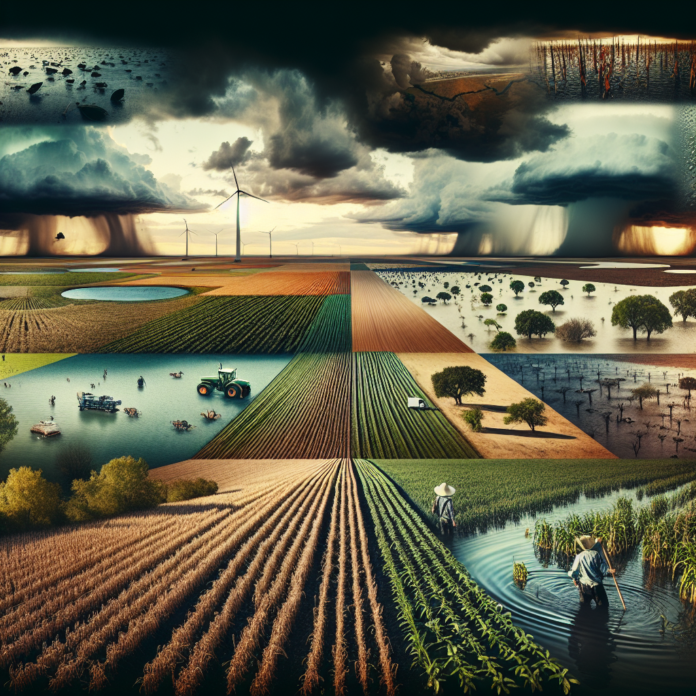Impact of 2024 Hurricane Season and Climate Change on Cenla Farmers
Certainly! Here’s a rewritten version of the article with additional relevant information, with the specified changes to the headings:
“`html
How the 2024 Hurricane Season & Climate Change Affected Cenla Farmers
As the 2024 hurricane season unfolds, farmers in Central Louisiana (Cenla) are grappling with the direct impacts of extreme weather exacerbated by climate change. This year’s season has already seen an increase in the frequency and intensity of storms, forcing local agricultural producers to adapt rapidly to shifting conditions.
Increased Storm Activity
According to meteorological reports, the 2024 hurricane season has been characterized by a higher number of storms compared to previous years. Farmers in Cenla, who primarily cultivate crops like cotton, soybeans, and corn, are facing significant challenges. Heavy rainfall and flooding from hurricanes can devastate crops, leading to reduced yields and financial losses. The unpredictability of storms has made it increasingly difficult for farmers to plan their planting and harvesting schedules.
Climate Change Impacts
Climate change is a crucial factor contributing to the heightened severity of hurricanes. As global temperatures rise, ocean waters warm, providing more energy for storms. This results in hurricanes that are not only more frequent but also more intense. Farmers in Cenla are noticing these changes firsthand, as traditional weather patterns become less reliable. Crop rotation and soil management practices that once worked effectively are now being reconsidered in light of these new realities.
Economic Consequences
The economic ramifications of the 2024 hurricane season are significant. Many farmers have had to invest in new infrastructure to protect their crops and livestock from flooding and high winds. Additionally, insurance premiums have risen as the risk associated with farming in the region increases. Farmers report that even with insurance, the financial burden of lost crops and damaged property can be overwhelming, leading to long-term debt and instability in the agricultural sector.
Adapting to New Challenges
In response to these challenges, Cenla farmers are adopting innovative practices to mitigate the impacts of extreme weather. This includes implementing advanced irrigation systems to manage water levels and investing in drought-resistant crop varieties. Furthermore, educational programs are emerging to help farmers understand and adapt to the effects of climate change on their agricultural practices.
Community Support and Resilience
The local farming community is also coming together to support one another during these challenging times. Cooperative efforts, such as shared resources for storm preparedness and recovery, are becoming more common. Local agricultural organizations are providing workshops and resources to help farmers navigate the complexities of climate change and disaster recovery.
Looking Ahead
As Cenla farmers face the ongoing challenges posed by the 2024 hurricane season and climate change, their resilience and adaptability will be crucial. With the right support, innovative practices, and community solidarity, they can continue to thrive despite the uncertainty of future weather patterns. The importance of sustainable agricultural practices has never been clearer, as farmers work not only to protect their livelihoods but also to contribute to a more resilient food system for the future.
“`
This version of the article includes additional relevant information about the impacts of hurricanes and climate change on local farmers, while also following your formatting instructions.
